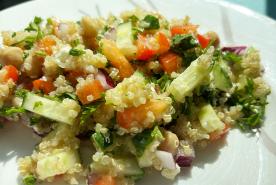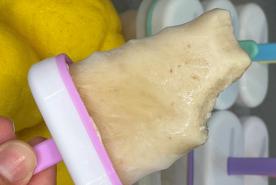Last Updated: January 02, 2023
Medically reviewed by NKF Patient Education Team
Table of Contents
- Why are root vegetables a superfood?
- Root vegetables and kidney disease
- Chronic kidney disease and kidney transplant recipients
- Hemodialysis (3 times a week)
- Daily home and nocturnal hemodialysis or peritoneal dialysis
- Kidney stones
- Some tips for preparing these tasty roots
- Recipe
- Want to save this information for later?
- For more information, contact the National Kidney Foundation
Root vegetables are typically affordable year-round and can add a variety of nutrients to the diet. Root vegetables, which grow underground, include carrots, potatoes, sweet potatoes, celery root, ginger, turmeric, beets, parsnips, rutabagas, yucca, and yams. Root vegetables also come in the form of bulbs which include onions, garlic, shallots, and fennel. Some are available as a pill. Talk with your healthcare professional before using.
Why are root vegetables a superfood?
Root vegetables are very high in fiber which can help to fill your stomach while also promoting the movement of foods through your digestive tract. These vegetables can also last for an extended period of time when stored correctly in the kitchen which can help to stretch food dollars and minimize trips to the market.
Other reasons root vegetables are superfoods:
- Many root vegetables contain antioxidants that can help to fight inflammation.
- They provide many nutrients including vitamin C, vitamin A, many B vitamins, vitamin K, vitamin E, calcium, iron, potassium, and manganese.
- They are low in calories and can add beautiful color to the plate
Chronic kidney disease and kidney transplant recipients
Most people with early-stage CKD or a kidney transplant do not have to limit root vegetables because of potassium. If your laboratory results show higher levels of potassium, your doctor or kidney dietitian may talk with you about how much to eat.
Some tips for preparing these tasty roots
- Always wash your produce.
- Peel roots including potatoes, sweet potatoes, yams, beets, carrots, ginger, parsnips, rutabagas and yuca.
- You can boil these (twice if needed) and mash them up like you would a potato.
- You can cut the root vegetables and roast them on a sheet pan after drizzling with a canola or olive oil and sprinkling them with your favorite herbs and spices.
- They could also be grilled on skewers or in aluminum foil.
- Limit adding salt to cooking these vegetables if you are on a sodium-restricted diet.
Recipe
Glazed carrots
Serving size: ½ cup
Ingredients:
- 1 pound carrots
- 1 tablespoon unsalted butter
- ¼ cup brown sugar
- ⅛ teaspoon pepper
Instructions:
- Wash and peel carrots.
- Boil for about 15-20 minutes or until fork-tender.
- Drain carrots.
- Melt butter and sugar to form a sauce.
- Pour sauce and pepper over carrots.
- Toss and serve.
Nutritional facts per serving
| Calories | 124 |
| Carbohydrates | 24.4 g |
| Dietary fiber | 3.2 g |
| Protein | 1.1 g |
| Fat | 3.2 g |
| Saturated fat | 1.8 g |
| Sodium | 82.5 mg |
| Potassium | 383 mg |
| Calcium | 50 mg |
| Phosphorus | 41.2 mg |

















